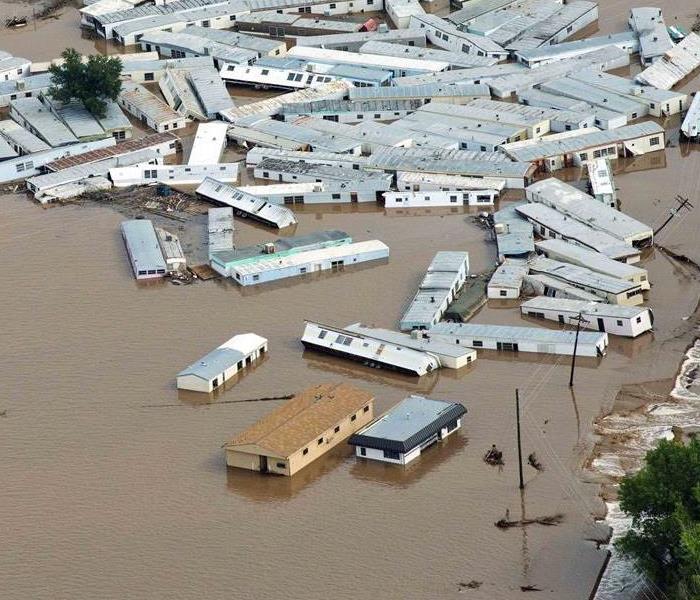Springtime and Floods
3/22/2018 (Permalink)
Floods are one of the most common and widespread natural disasters in the United States. Whether your home or business is near a coastline, along city streets, in the mountains, near a river, or even in the desert – there is always potential for flood damage. Fema.gov reports in the last 5 years, 50 states have experienced floods or flash floods so just because you haven’t experienced a flood in the past does not mean you won’t in the future. In fact, nearly 20% of all flood insurance claims come from moderate-to-low risk areas, and just one inch of flood damage in an average home can cost you up to $27,000.00*
According to the American Red Cross, floods cause more damage in the U.S. every year than any other weather-related disaster. The American Red Cross offers the following flood safety tips.
- Stay away from floodwaters. If you come up on a flowing stream where water is above your ankles, stop, turn around, and go another way. Six inches of swiftly moving water can sweep you off of your feet.
- If you approach a flooded road while driving, turn around and go another way. If you are caught on a flooded road and waters are rising rapidly around you, get out of the car quickly and move to higher ground. Most cars can be swept away by less than two feet of moving water.
- Keep children out of the water. They are curious and often lack judgment about running water or contaminated water.
If a flood does strike your home or business, call SERVPRO of Greeley/Windsor at 970-353-1388. Even minor floods have the potential to cause major damage to a structure when not treated quickly and properly, and the cleanup is often an overwhelming task.
Highly Trained Restoration Specialists
Our SERVPRO Professionals are highly trained in property restoration. From initial and ongoing training at SERVPRO's Corporate Training Facility to regular IICRC industry certifications, our Professionals are equipped with the knowledge to restore your property. The SERVPRO training program includes, but not limited to, the following:
- IICRC Training
- Employee Certification Training
- e-Learnings
- Continuing Education Classes *Facts and figures provided by fema.gov



 24/7 Emergency Service
24/7 Emergency Service
